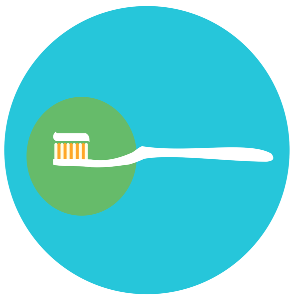A survey of knowledge, attitude, and practice of oral hygiene amongst healthcare workers at a tertiary hospital in Northwestern Nigeria

All claims expressed in this article are solely those of the authors and do not necessarily represent those of their affiliated organizations, or those of the publisher, the editors and the reviewers. Any product that may be evaluated in this article or claim that may be made by its manufacturer is not guaranteed or endorsed by the publisher.
Accepted: 4 July 2023
Authors
The overall well-being of an individual cannot be complete without adequate oral health since the oral cavity is the gateway to the whole body and an integral part of the Gastrointestinal Tract (GIT). Many systemic illnesses manifest in the oral cavity and can be diagnosed easily by its simple clinical examination. The involvement of other healthcare workers in the hospital, such as medical doctors, nurses, and laboratory scientists, for effective and efficient dissemination of oral health education to the general populace, is of paramount importance by virtue of the large number of patients they come in contact with in their daily practice. However, this could not be arbitrarily assumed without calibrating their knowledge, perception, and practice of oral health to ascertain if they can truly impart positively to the patients. This study determined the knowledge, attitude, and practice of oral hygiene amongst healthcare workers at the Federal Medical Centre Gusau, northwestern Nigeria. A descriptive cross-sectional study was conducted amongst healthcare workers in Federal Medical Centre Gusau, Zamfara State, Nigeria. A total of 200 self-administered questionnaires were distributed using a convenient sampling technique. Data collected was analyzed using the Statistical Package for Social Sciences (SPSS; IBM Corp., Armonk, NY, USA) software for Windows version 25.0. Of the 200 questionnaires distributed, 193 (96.5%) were retrieved. The mean age of the participants was 37.1±8.53 years, with a range of 21 to 60 years. Study participants comprised of 114 (59.1%) males and 79 (40.1%) females. The majority (79.3%) were Muslims, while about one-fifth (20.7%) were Christians. About half (48.2%) of the participants were nurses, followed by laboratory scientists (31.1%), while medical doctors were 40 (20.7%) of the population. Slightly above half (50.8%) obtained their oral health information from oral health workers, while 58 (30.1%), 24 (12.4%), and 13 (6.7%) obtained their information from leaflets, family and friends, and newspapers, respectively. The average knowledge, attitude, and practice score amongst all the participants was good, as about 75%, 69%, and 63% answered correctly in the knowledge, attitude, and practice domains, respectively. There was a statistically significant difference between the different cadres of health workers in the attitude and practice domains tested (p<0.05). The oral health knowledge attitude and practice in the studied health workers is satisfactory. However, there are other aspects of the attitude and practice that need to be modified through continuous medical and dental education to be anchored by the Preventive Dentistry Department in conjunction with the Public Health Department of the state Ministry of Health.
Dean Faculty of Dentistry, Bayero University Kano, Nigeria
Director, Intercountry Centre for Oral Health for Africa
How to Cite

This work is licensed under a Creative Commons Attribution-NonCommercial 4.0 International License.






